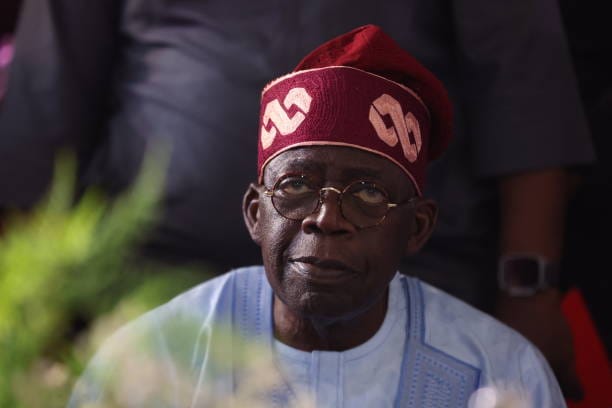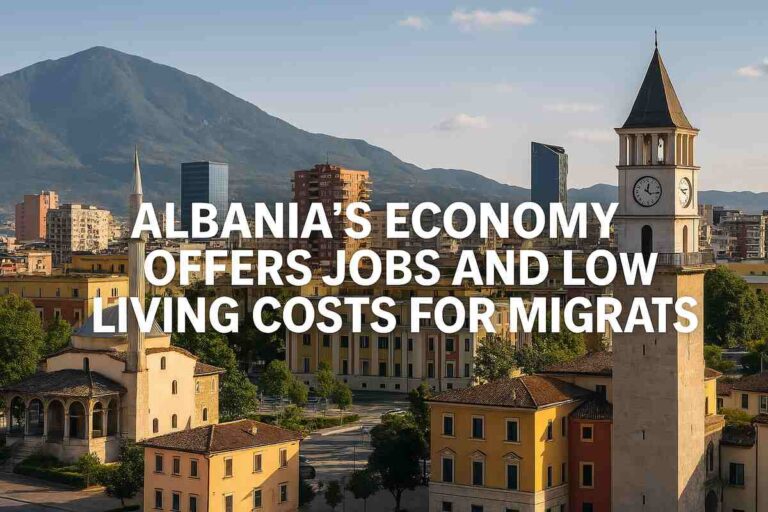

Nigeria’s infrastructure ambitions under Tinubu face obstacles: debt, bureaucratic delays, security issues, and limited private investment opportunities threaten progress. (Photo by Kola SULAIMON / AFP) (Photo by KOLA SULAIMON/AFP via Getty Images)
EPICSTORIAN — As President Bola Ahmed Tinubu’s administration advances through its first year, hopes and expectations among Nigerians are high.
Tinubu’s administration has earlier outlined ambitious plans aimed at improving the country’s infrastructure, economy, and social welfare.
However, completing these projects by the end of his tenure may be challenging as various economic, political, and operational factors could stand in the way of his administration’s capacity to achieve its goals, which, of course, raises logical questions about the feasibility of realising these plans fully by the end of his constitutionally allowed tenure .
Tinubu’s Administration Faced with Funding Challenges and Economic Constraints
One of the foremost challenges facing the Tinubu administration, as clearly seen in its constant borrowing, is the country’s economic condition, specifically the mounting debt and shrinking revenue.
Nigeria’s economy has been plagued by issues such as inflation, high unemployment, and an over-reliance on oil revenue. Oil prices are notoriously volatile, and Nigeria’s income from this sector is frequently unpredictable.
Additionally, currency devaluation and sliding foreign reserves make it difficult to support large-scale imports and infrastructure projects without additional funding sources.
Growing cost of Nigeria’s debt servicing rate at 74.2% , reckless spending by government agencies, are absorbing a substantial part of Nigeria’s revenue. The debt burden reduces the funds available for capital projects, making it harder for the administration to finance new projects and maintain existing infrastructure.
Tinubu’s government will likely need to explore alternative financing models or attract foreign investments to make these projects viable. Without sustained funding, however, the risk of projects being abandoned halfway or completed below standard increases should be expected by Nigerians.
Bureaucracy and Administrative Delays.
The Nigerian bureaucracy is often criticised for its inefficiency, with official procedures and incompatible regulations slowing down the implementation of policies and mapped-out projects.
These common delays, as have been identified by EPICSTORIAN research experts, can arise from various factors, including approvals, permits, and regulatory processes that are cumbersome or outdated.
Tinubu’s administration, however , has pledged to introduce reforms to streamline key government units’ operations, but overcoming the established bureaucratic practices and controls is no easy task and often brushed away.
Project execution often requires collaboration across Nigeria’s federal, state, and local levels, each with different interests and priorities, where we often have the project approval undergo series of slow-paced deliberations outrunning the proper timing.
This fragmented approach undoubtedly lead to unnecessary delays and complications, especially when a project involves multiple government agencies or requires the consent of state governments.
Consequently, without effective inter-agency coordination and reduced bureaucratic bottlenecks, president Tinubu’s administration may find it highly challenging to keep project timelines on track and deliver its proposed .
Nigeria’s Insecurity and Its Impact on Development Projects
Public insecurity remains a critical issue in Nigeria, affecting many regions and threatening peace and economic stability across the country. The popular perpetrators of such insurgencies range from Boko Haram in the North-East to banditry in the North-West and secessionist agitations in the South-East, creating an unconducive, hostile environment for businesses and government development projects.
Contractors and government officials working on site are often at risk of being kidnapped or killed by terrorists, which can lead to project abandonment, delayed timelines, or heightened costs due to security expenses and theft of properties meant for construction.
Furthermore, insecurity can discourage foreign investors who are needed to partner with the government on many initiatives. Projects like road constructions, healthcare facilities, and schools become harder to implement in regions where violence is prevalent as can identified in the locations stated above.
In such cases,the Tinubu’s administration may struggle to achieve widespread infrastructure improvements across all regions, possibly leading to unequal development and unfulfilled promises, although the aforementioned challenges should not become his government’s crotches.
Limited Public-Private Partnerships caused by fear of unstable government policies
Public-Private Partnerships (PPPs) are widely recognised as a practical approach to executing large-scale projects, particularly in infrastructure development, where the government may cut clear-cut deals with private agencies to finance a project.
However, Nigeria has historically faced difficulties in establishing successful PPP frameworks due to a lack of clear policies and fear, an unpredictable business environment, and occasional government interference.
Tinubu’s administration has expressed interest in engaging the private sector, but securing these partnerships will require creating a stable and predictable investment environment that assures private sector players of high returns and minimal risk of loss of capital outlay.
Many investors may feel uncertain about committing to long-term projects in Nigeria due to economic policies often subject to sudden shifts, midway abortion of initially proposed public executions, and discriminatory sentiments.
Therefore, without adequate Public-Private Partnerships (PPPs), the administration would need to rely heavily on limited public funds, which could slow down project implementation or force the government to defer some initiatives until further resources become available.
Fragile Public Trust and Political Opposition
One of the non-technical challenges President Tinubu faces is gaining and maintaining public trust. With Nigeria’s history of abandoned projects and unfulfilled promises made to citizens at the polls, the public may break faith with his leadership, remaining sceptical of any new projects announced by the government.
Winning the hearts of the public and convincing them of the administration’s commitment requires consistent and transparent communication, which, of course, plays along with evidence of early successes in ongoing projects.
In addition, Tinubu’s administration may face political opposition, particularly in regions led by opposing parties or from lawmakers unwilling to support specific projects with mixed interests or the sole intentions to mire the image of his government as to project the genius of their party.
These political rivalries (other than well-meaning Nigerians driven by pure constructive arguments for positive changes) can stall projects at both local and national levels if the required approvals or legislative backing are obstructed by opposition groups. Navigating these challenges effectively will be essential if Tinubu is to avoid delays caused by political resistance and maintain progress on projects.
Inefficient or Rather Ill-advised Project Planning process and Execution Capacity
Finally, project execution requires not only funding and approvals but also technical expertise and management capacity. Many large-scale projects necessitate efficient planning, skillful management, and periodic monitoring to ensure that work remains on schedule and within budget, but Nigeria’s government, including past administrations, is inherently affected by lack of effective project expectation follow-up.
It’s writ large, and in fact unarguably crystal clear, that Nigeria has experienced professionals across sectors, but the government often faces challenges in retaining top talent due to presumed better opportunities abroad or in the private sector. With this being said, the administration may struggle to prevent delays, cost overruns, and poor quality outcomes, without dedicated project managers and experts.
The success of Tinubu’s projects within the first or second term of his administration, if Nigerians so decide 2027, will largely depend on his leadership’s ability to assemble, harness , and retain capable personnel to oversee each phase of implementation. Barring this, the quality and timeliness of project delivery may suffer elusive spin of direction , limiting the impact of the administration’s agenda.







